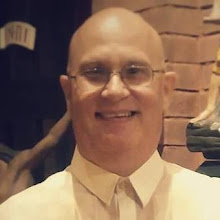It is not often an orchestra in the US hinterlands gets to play on the world stage and introduce a major new work by a rising star composer and soloist. But that is exactly what is happening this weekend with the Kansas City Symphony. Music director Michael Stern leads the orchestra in the Bartok Hungarian Sketches, conducts the world premiere of Israeli composer Avner Dorman's Piano Concerto, Alon Goldstein as soloist, and concludes with a masterpiece of late romantic symphonic works, the Symphony # 2 of Sibelius.
Bartok's Hungarian Sketches, 5 short dances and portraits of rural life in Hungary were well served by the brisk and appropriately pungent winds. "Evening in the Village" and "Melody" were atmospheric and lyrical. The concluding "Swineherds Dance" brought the short suite to a festive conclusion.
To say that Avner Dorman's new Piano Concerto, is unique among its brethren is what some refer to as an understatement. For example, the twenty minute or so tour de force for piano and large orchestra begins with a seance and ends with an exorcism. In between we have "Twilight", a ghost-fantasy concert recalling the specters of past piano masters; everyone from Art Tatum to J.S. Bach.
Theatre? Yes. The concerto begins with the soloist conspicuously absent from his piano. Among microtonal ghost music from the high strings (think Penderecki's "Threnody") the orchestra evolves into a slowly undulating fog straight from the "Housatonic At Stockbridge" from Ives' "Three Places in New England. The house goes dark and with a commanding crash of keys and sudden light, the soloist is at the piano, summoned as it were to channel the ghosts of Chopin, Messiaen, Bach, Gershwin and a heavenly host of others.
In the aforementioned "Twilight", a softer, reflective slow movement, the orchestra sits back and lets the pianist rhapsodize on all the ghostly influences the seance has conjured. Shimmering, Janissary figures from the orchestra underpin the almost improvisatory piano. Bach skirts by, a bit of Messiaen bird song, music of the future, tonal chords, cadences and soon increasingly frequent impatient rumbles from the huge percussion battery. Ivesian in a way, as the familiar figures (never quotes, but reflections) weave their way through a dense orchestral fabric.
Ok, ENOUGH! The orchestral ghosts reappear and the battle is on. If this is an Ivesian piece, then the final "Exorcism" is the "Comedy" second movement of Ives' 4th, interpreted in the jazz/rock/world music of the 21st century. The ghost hangs on bravely, as does pianist Alon Goldstein, who literally battled the keyboard and the score until he gave up in a ghost-rattle, brittle as bone trill on the highest notes. His reward? To be dispatched in darkness by a percussion blast, where upon the lights reveal an empty bench.
When have you heard a new work greeted with a few pleasant chuckles and then rapturous applause?
This is a major new work, and frankly I can see being appreciated without the theatrics. The orchestral writing is brilliant, colorful but sometimes a bit overwhelming. Huge percussion battery, full complement of brass and winds, celesta, harp and orchestral piano are frequently called upon in full force. It is jazzy-sexy in spots, sweetly tonal in others, full of simple melodies and complex rhythms (I can just see the pages teeming with notes and polyrhythms) and a rhapsodic structure, that despite few recurring themes (outside of the "ghost music") holds together. The audience held on to every note as if they were on the ride of their life. Even the friend who accompanied me, who professed to not like the piece (a traditionalist basically) had to admit he was on the edge of his seat the whole time.
After the visceral and almost exhausting Dorman, the Sibelius was almost an anti-climax. This most passionate and stirring work received a fine performance from the orchestra, with the usual fine work from the winds and some excellent brass. Unfortunately, in the second Andante movement, the orchestra's concentration, intonation and movement flagged, but recovered for a stately and satisfying finale.
But the night belonged to the Dorman Concerto. Pianist Alon Goldstein, composer Avner Dorman and Music Director Stern quite happily took in the prolonged and sincere ovation. As well they should for the piece and the performance was a major achievement.
Sunday, November 22, 2009
Subscribe to:
Post Comments (Atom)



1 comment:
I was absolutely mesmerized by Lost Souls on Friday evening. Of course, the narrative Dorman gave just before the premier helped.
The Bartok was delightful -- which is not always how aI would describe Bartok.
And when the Sebelius symphony built beautifully to the complete melodic phrase so anticipated, I had this magnificent moment of wonder...jumping to my feet at its close so high, I was headed for the ceiling!!
It may have been the best concert ever...and surely rates up there.
Post a Comment